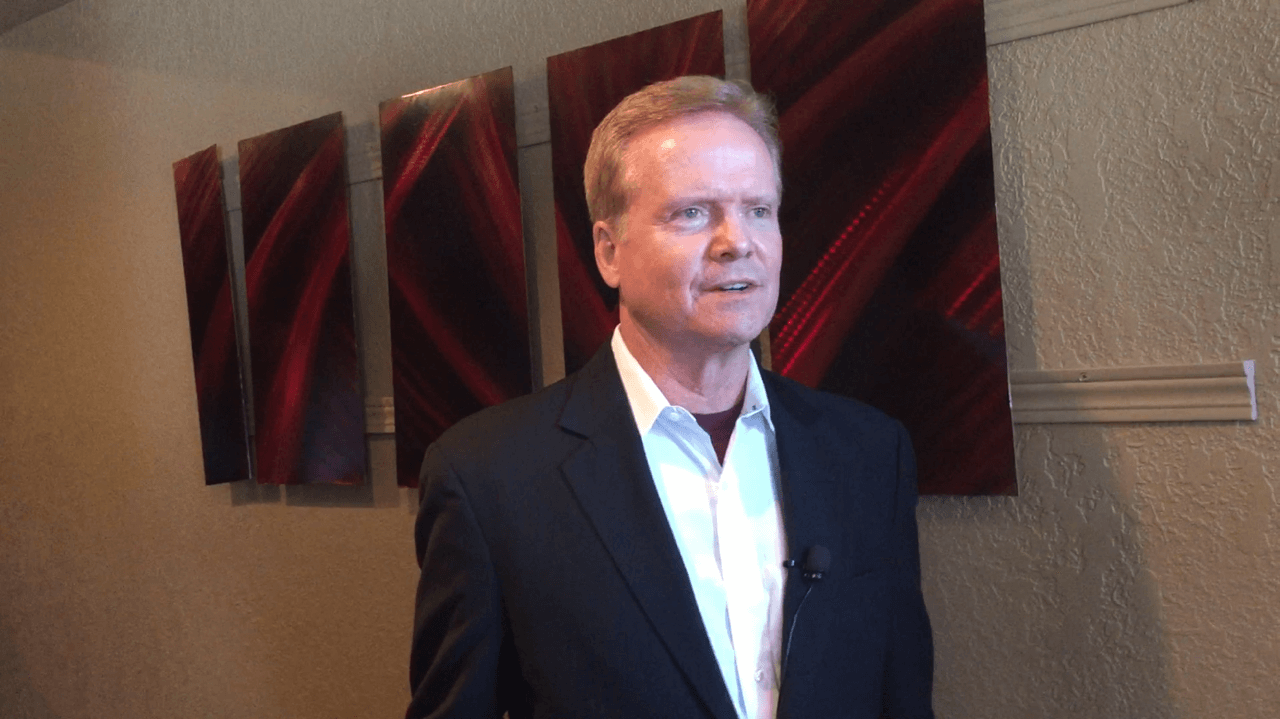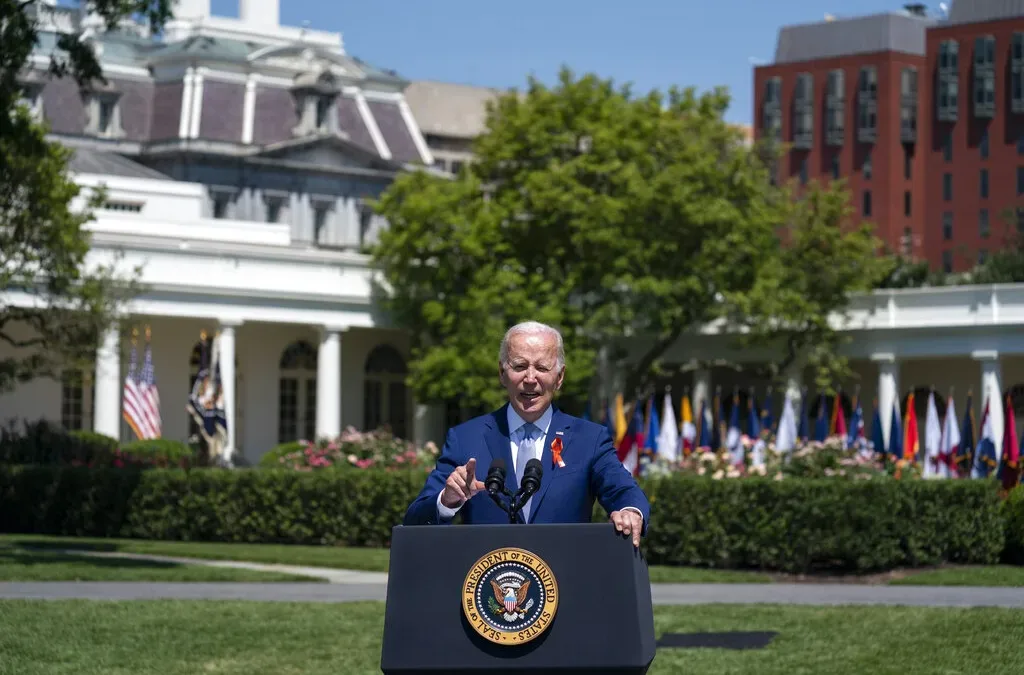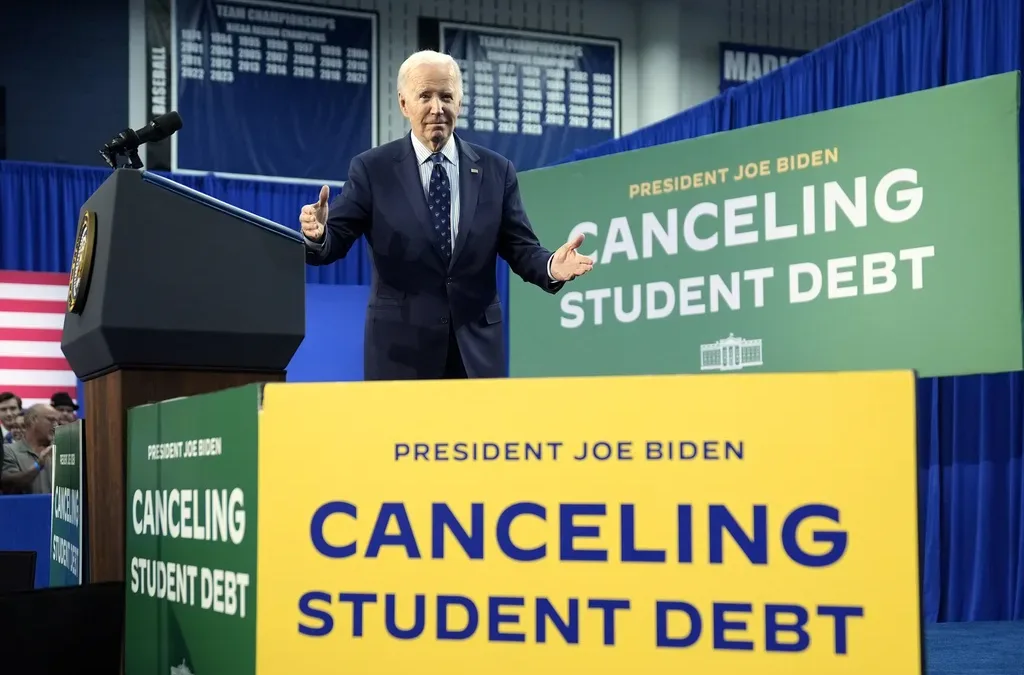
Jim Webb announced this afternoon that he is dropping his bid for the Democratic Party’s nomination for president. He has also bailed from attending the Iowa Democratic Party’s Jefferson Jackson Dinner this Saturday, a chance to speak in front of thousands of activists and the entire national press. He says he’ll consider over the next few weeks whether to run as an independent, but what he means by “run” is open to interpretation, considering he’s barely campaigned this year at all.
Webb began testing the waters for his long-shot bid back in 2014 (even announcing an exploratory committee before anyone else), visiting Iowa for three days to make early connections with local activists. At first it looked like he might make a serious effort early on in 2015, embarking on several multi-day stops, including an impressive performance at a major labor event.
But his event schedule was quickly filled with peculiar side visits rather than meetings with core Democratic activists that could build a caucus operation. His staff seemed completely uninterested in getting press to cover him. He skipped the New Hampshire Democrats’ huge convention in September (which he had indicated he’d attend) for a small fundraiser in Marshalltown that received little attention. And his speeches, like at the Polk County Democrats’ dinner in April, were short and sweet, and contained only small hints at what he was interested in doing as president. And then he disappeared, holding no events on his own in Iowa for months now.
Jim Webb is lucky to be here in the first place. He won his Senate by only a 0.4% margin in 2006 after George Allen’s infamous “macaca moment.” Then he up and decided not to run again in 2012, even though he’d likely be a favorite for reelection. It’s a pattern with Webb, and makes one wonder why on earth he wants to be involved in politics in the first place if he hates it so much.
That ends up being the real problem with this whole ordeal. Webb mistakenly blames partisan politics, rigged debate rules and a Democratic Party that has shifted too far to the left.
“Americans are disgusted by all this talk of Republicans and Democrats calling each other the enemy,” Webb said in his press conference announcing his departure from the Democratic primary. “The other party is not the enemy, it is the opposition … Our political candidates are being pulled to the extremes, they’re increasingly out of step with the people they’re supposed to serve … I fully accept that my views on many issues are not compatible with the Democratic Party.”
But he didn’t even try that hard to change the debate. He got frustrated with the system, threw his hands in the air and went home without putting any real effort in. I’ve seen plenty of unsuccessful politicians like this before, on both the national and local level – people who think they have the best ideas in the world, but are unfairly shunned by a hierarchy of people who are all against him/her. However, in reality they’re either lazy or lack the discipline or personal skills to be effective in politics.
People like that, including Webb, in themselves are part of the problem in politics, not a solution suppressed by those with power. There are a lot of complainers in politics, some of whom end up running for office. They often detract from the real debate and needlessly heighten frustration with the political process, causing people to misconstrue a candidate’s limitations with proof of a rigged system.
And in this case, it’s a shame Webb didn’t stay a Democrat and take his message to the party. It’s one that, even if the majority of Democrats don’t agree with, should be heard. This is still a big tent party. Yes, most Democrats have consolidated around more progressive policies and cultural attitudes in recent years. But we still gladly accept (or at least we should) more conservative-leaning voters and leaders into our ranks (even if perhaps we prefer they not lead the party nationally). No one’s going to tell a voter who supports restrictions on Wall Street, backs increased public education funding and favors gay marriage that they can’t be a Democrat because they also happen to be an NRA member.
More importantly, Webb offered a look into the mindset of white, working class voters, many of whom have slowly drifted into the Republican Party as of late. Webb sees this as part of the problem of the Democratic Party fully embracing identity politics in recent years.
“The Democratic Party is heavily invested in interest group politics,” he said in his press conference. “And interest group politics can exclude people who need a voice.”
He’s not wrong, at least not in some important aspects. Engaging women and people of color around issues that matter personally to them is a smart strategy, and fits with the Democratic Party’s values. But sometimes we forget that we’re also a party of broad economic opportunity that benefits the middle class and the poor as a whole (which also includes those women and people of color), and instead focus our general election messages almost exclusively around very specific demographics most likely to be swayed by that message. That’s fine and all, but if that’s all you talk about (as Democrats did in the 2014 Colorado Senate race), you miss out on other large swaths of the electorate. Bernie Sanders has captured this unifying message most effectively this cycle, but Webb could have added an important voice as well.
Now Webb will decide whether or not to run as an independent candidate in the general election. Hopefully he does not, as he might serve as a spoiler for Democrats in Virginia, if he were able to get on the ballot (though, come to think of it, there might be plenty of Republican-leaning voters who’d vote for him too). Even if he does, it’s doubtful he’ll add any more to the national conversation than he did in the Democratic primary. And his complete refusal to even play in the slightest bit along with the requirements of political campaigning would likely make him completely unproductive in the White House.
All of which really is too bad. Jim Webb has a proud and decorated career in the military and in public service, and holds a unique viewpoint that could have expanded and strengthened the Democratic Party. He should have told it more.
by Pat Rynard
Posted 10/20/15
Politics

Biden announces new action to address gun sale loopholes
The Biden administration on Thursday announced new action to crack down on the sale of firearms without background checks and prevent the illegal...

Biden cancels student loan debt for 2,690 more Iowans
The Biden administration on Friday announced its cancellation of an additional $7.4 billion in student debt for 277,000 borrowers, including 2,690...
Local News

No more Kum & Go? New owner Maverik of Utah retiring famous brand
Will Kum & Go have come and gone by next year? One new report claims that's the plan by the store's new owners. The Iowa-based convenience store...

Here’s a recap of the biggest headlines Iowa celebs made In 2023
For these famous Iowans, 2023 was a year of controversy, career highlights, and full-circle moments. Here’s how 2023 went for the following Iowans:...





